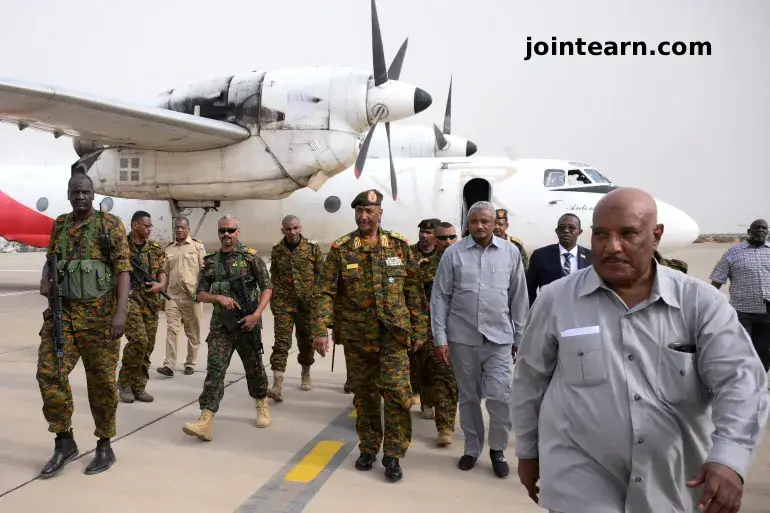
Khartoum, Sudan – October 28, 2025 — Sudan’s army has confirmed its withdrawal from the strategic city of el-Fasher, the last major government stronghold in the Darfur region, as the United Nations and humanitarian agencies warn of “atrocities” being committed by the Rapid Support Forces (RSF) against civilians trapped in the war-torn city.
The announcement by General Abdel Fattah al-Burhan, Sudan’s military chief, came late Monday — just one day after RSF fighters seized control of the Sudanese army’s main base in el-Fasher, effectively consolidating their dominance over Darfur.
Army Withdrawal Leaves Thousands Trapped Under RSF Control
The fall of el-Fasher marks a major turning point in Sudan’s brutal 18-month war, leaving over 250,000 civilians — half of them children — under RSF occupation. Aid groups and witnesses have reported widespread violence, looting, and arbitrary arrests as RSF units sweep through the city.
In a televised statement, General al-Burhan said the decision to withdraw was made “to spare civilians from further destruction,” accusing the RSF of “systematic killing” and “mass atrocities.”
“We are determined to avenge what happened to our people in el-Fasher,” al-Burhan declared. “The Sudanese people will hold these criminals accountable.”
Humanitarian workers describe a worsening crisis, with hospitals destroyed, medical staff targeted, and entire neighborhoods razed. According to the Sudan Doctors Network, the RSF’s assault on el-Fasher amounted to a “heinous massacre,” with dozens killed and many others missing.
UN and Rights Groups Sound Alarm Over War Crimes
UN Secretary-General Antonio Guterres condemned the developments as a “terrible escalation” in Sudan’s conflict, warning that the level of suffering in the country has become unbearable.
The UN Human Rights Office reported credible evidence that RSF fighters carried out summary executions and ethnically motivated killings of civilians attempting to flee the city.
“The risk of further large-scale, ethnically motivated violations and atrocities in el-Fasher is mounting by the day,” said Volker Türk, the UN high commissioner for human rights.
The Darfur Network for Human Rights said the RSF detained more than 1,000 civilians, describing it as part of a “systematic campaign” that may constitute war crimes. Among those detained was a local journalist, one of the few remaining in el-Fasher, raising fears of a total information blackout.
The Sudan Doctors Union condemned the RSF’s assault as “a barbaric policy aimed at terrorizing and annihilating civilians,” calling on the international community to designate the RSF as a terrorist organization.
Eyewitness Accounts and Humanitarian Collapse
Footage circulating on social media showed RSF fighters celebrating inside the captured military base, while other clips depicted beatings, shootings, and detentions of civilians trying to flee.
Mathilde Vu, Sudan advocacy manager at the Norwegian Refugee Council, told Al Jazeera that communication with local partners had been lost for more than 24 hours.
“We’ve been trying to reach our partners in el-Fasher with no success,” Vu said. “Reports indicate mass atrocities — executions, kidnappings, and unbearable suffering. No one is safe right now.”
Before the fall, UNICEF estimated that more than 260,000 civilians were trapped in the city, with 26,000 already displaced to nearby areas, including Tawila — now overwhelmed by the influx of refugees.
Broader Conflict and Humanitarian Impact
Sudan’s ongoing conflict erupted in April 2023, when tensions between the Sudanese Armed Forces (SAF) and the RSF exploded into open warfare in Khartoum. Since then, the violence has spread across the country, leaving more than 40,000 people dead and over 12 million displaced, according to UN estimates.
The RSF, which evolved from the Janjaweed militia accused of atrocities during the Darfur conflict in the 2000s, has been repeatedly linked to ethnic cleansing, sexual violence, and looting.
The International Criminal Court (ICC) has opened investigations into alleged war crimes and crimes against humanity, particularly in Darfur, where the humanitarian situation is now described as the world’s worst crisis.
Elsewhere in Sudan, the RSF attacked the town of Bara in the central Kordofan region over the weekend, killing at least 47 people, including nine women, according to the Sudan Doctors Network.
A Nation on the Brink
The fall of el-Fasher raises fears that Sudan could once again fracture along regional and ethnic lines, reminiscent of the split that led to South Sudan’s independence in 2011. Analysts warn that without immediate international intervention, the violence could escalate into a full-scale genocide.
As the RSF consolidates control across Darfur, humanitarian corridors have collapsed, and international aid groups struggle to deliver food, medicine, and shelter to millions on the brink of famine.
UN agencies are urging world powers to act swiftly to prevent further atrocities. “The international community cannot stand by while civilians are slaughtered,” said Guterres. “Sudan’s people are enduring a nightmare that must end.”


Leave a Reply